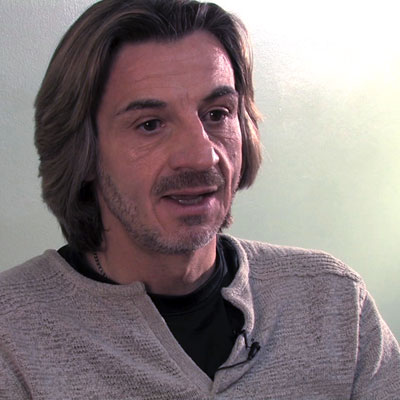 |
| Michael Vallis, the co-chair of Partners For Healthier Weight, is a health psychologist with the Behavior Change Institute at Capital Health, adjunct professor with Department of Psychology and associate professor with the Department of Psychiatry, Dalhousie University. (Bruce Bottomley Photo) |
The clock strikes midnight on December 31. So starts a new year. Time to make resolutions and have a chance for a fresh start. Is this the year you will finally stop biting your nails? Or will you instead hit the gym every day? Or maybe this is the year you vow to lose that extra weight and make a healthy lifestyle change that lasts longer than end-of-year sales.
If you’re really serious about that last resolution, you’ll want to know about Partners for Healthier Weight, the first medically based weight loss program in Atlantic Canada.
But this program is not for those looking to lose just a few pounds. Partners For Healthier Weight is geared toward individuals with a body mass of 30 or above who are willing to commit to a year-long program that promises to be life changing. The program is geared to members of the Capital Health and Dalhousie University communities.
What makes this program different than other weight-loss programs is that it offers no expectations and makes no false promises.
Facilitated by experts
“We’re not going to tell you you’re going to lose 100 pounds, or that you’re going to have a perfect hour-glass shaped figure,” says Dalhousie professor Michael Vallis, the co-chair of the program. “What you will get is skilled, clinical professionals using real scientific research and evidence to help you make a lifestyle change that works for you personally.”
The first 12 weeks of the program sees participants ending their relationship with food. That is to say, participants will completely give up solid food and instead follow a low calorie, high protein, mineral and vitamin liquid diet.
The 12-week liquid diet allows participants to completely detoxify their body from the negative effects of a poor diet. Sugar, fat and salt engage the addictive centers in the brain which can make giving up unhealthy foods extremely difficult. Though this may seem like an extreme approach, it’s necessary to totally reprogram the brain and the body, taste buds included, explains Dr. Vallis.
“Our goal here is to re-establish a relationship with healthy food,” says Dr. Vallis, a health psychologist and motivational expert. “To somebody who is used to eating potato chips, a bowl of rice is going to taste pretty bland. By reintroducing people to healthy, home-cooked meals made with real food we are creating healthy behaviors.”
Intensive and supportive
Another unique component of the Partners For Healthier Weight program is the psychological support given to participants. During the first six months of the program, participants meet once a week for three hours at a time. In these sessions, participants work with various health care professionals to create a realistic and sustainable approach to weight loss.
These sessions also work as a support network for participants. Each program has just 24 spaces, so participants are offered a built-in social support system in addition to the intensive medical support they are given. After the initial six months, participants meet once a month for three hours per session to monitor their progress.
At the end of the 52 weeks, participants will have a better understanding of why they eat and what their relationship with food really is. Participants will also have the knowledge they need to choose and prepare healthier meal options as well as engage in realistic physical activity.
For more information go to: http://www.partnersforcare.ca/ or call 473-1189.
